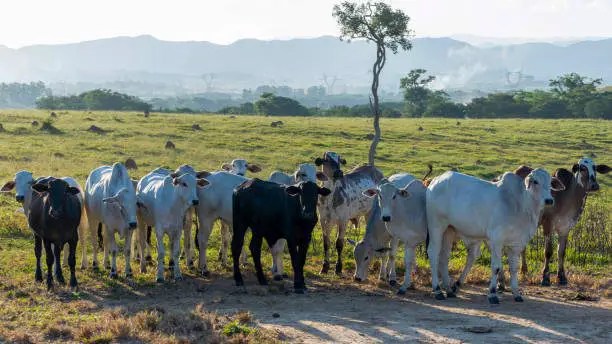Read in
Reheid El Berdi – Local government leaders, activists and others in Reheid El Berdi village in southern Darfur report illegal logging of firewood and charcoal, and threats to crops from pests and livestock.
A local resident told Radio Dabanga that there had been “violent attacks on forests in the area”. “A large portion of the population lives in poverty and is forced to trade in firewood and charcoal to meet their basic needs,” explained the community leader.
“The army is using vehicles to trade firewood and charcoal, and it is very successful,” he said.
Sources have called for forest laws to be invoked to limit tree destruction, adding that “there are rare trees that have completely disappeared, representing a significant environmental loss in the area.”
Farmers in Reheid El Berdi told Radio Dabanga that large numbers of locusts are threatening winter crops and the spread of groundwater-retaining herbaceous plants on which sorghum crops depend. Farmers have also urged authorities to increase farm security from livestock brought into their farms and destroy winter crops they want to harvest by mid-February. There is a long history of disputes between small farmers.
According to South Darfur Agriculture Minister Hamad Musa, the sorghum crop has been very productive in Reheid El Berdi village during this winter.
On Monday, the minister said Amtayok began harvesting operations on a number of farms on the banks of the valley near Shafo village.
Harvesting corn in winter was a great success. Farmers would be provided with the means of production, he said, and urged them to form agricultural producer cooperatives to receive the funds. As a first step, he said he plans to raise funds for two existing farmers’ unions to purchase farm equipment.
The minister listened to the farmers’ demands, which focused on ensuring the farming season, providing means of production, controlling agricultural pests and providing basic services in villages. The most important of these are drinking water, health and education.
tree logging
Environmental degradation from logging is affecting one of Sudan’s most important industries.
Production of gum arabic. “People are less aware of the dangers of deforestation,” economic and policy analyst Hafiz Ismail explained in his RD feature article on climate change. Tree cutting is also associated with increased desertification. As explained in an article published Nov. 17, Kunda Markaz of the Nuba Mountains of South Kordofan said that tree cutting, land overgrazing, poor agricultural practices are also eroding and groundwater levels are falling. , explains that it has led to forest fires.
In April 2021, the neighboring town of Ed el Farsan held a sit-in to protest illegal logging.
The sit-in called for the dismissal of the town’s forest director and the application of the forest law.
Ibrahim Zakaria, an agricultural engineer and member of the People’s Committee for Forest Conservation, said the authorities’ inaction was a big problem. After working in the forestry sector for 10 years, he observed how easily people violate Sudan’s forest laws because the authorities allow anyone to cut trees regardless of species.
Lieutenant General Abdelfata El-Burhan, chairman of the Sudanese Sovereign Council and chairman of the Sudanese Armed Forces, last year delivered his COP27 address to many heads of state, government officials and heads of various organizations. was reportedly furious.



